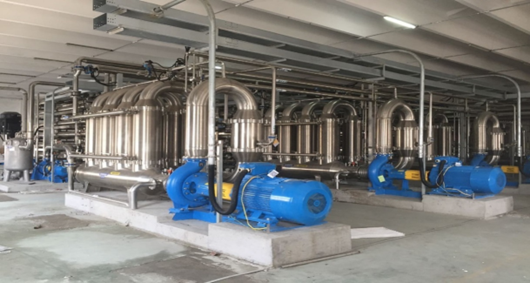1.The filtration effect of ceramic membranes
Ceramic membrane is a microporous membrane formed by high-temperature sintering of materials such as alumina and silicon, which has great application prospects in the field of filtration. Its main filtration function is to separate and purify liquid or gaseous substances through a microporous structure. Compared to traditional filtering materials, ceramic membranes have smaller pore sizes and higher porosity, resulting in better filtration efficiency.
2.Application fields of ceramic films
2.1. Applications in the food industry
The application of ceramic membranes in the food industry mainly includes two aspects: firstly, clarifying, filtering, and concentrating liquid foods such as alcohol, beverages, and fruit juice; The second is used for purification and extraction in fields such as meat, seafood, and dairy products. For example, using ceramic membranes to defat, concentrate, and filter milk can yield whey rich in nutrients.
2.2. Applications in the pharmaceutical industry
In the pharmaceutical industry, ceramic membranes are mainly used for the refinement, separation, and purification of drugs, vaccines, and biochemical products, as well as the filtration of microorganisms in drug infusion. Due to its corrosion resistance and high temperature resistance, ceramic films have higher stability in the production process, effectively ensuring the quality and safety of products.
2.3. Applications in the environmental protection industry
The application of ceramic membranes in the field of environmental protection mainly involves filtration and treatment of water quality. Place the ceramic membrane in the water tank, allowing sewage to enter the interior of the ceramic membrane through pores, and purify water quality through physical filtration, biodegradation, and other methods to achieve environmental protection.
3.The advantages and prospects of ceramic membranes
3.1. Advantages
Ceramic membrane has the advantages of high temperature resistance, corrosion resistance, anti-aging, non-toxic and tasteless. Its filtering effect is better, and it can effectively separate and purify liquid or gaseous substances. Compared with traditional filtering materials, it has a longer service life, lower cost, and more stable and reliable usage effect.
3.2. expectation
With the continuous development of technology, the application of ceramic membranes in the field of filtration will become increasingly widespread. In the future, ceramic membranes will further improve their physical and chemical properties and production processes, play a greater role, and bring more convenience and contribution to our production and life.

Post time: Jun-25-2024
